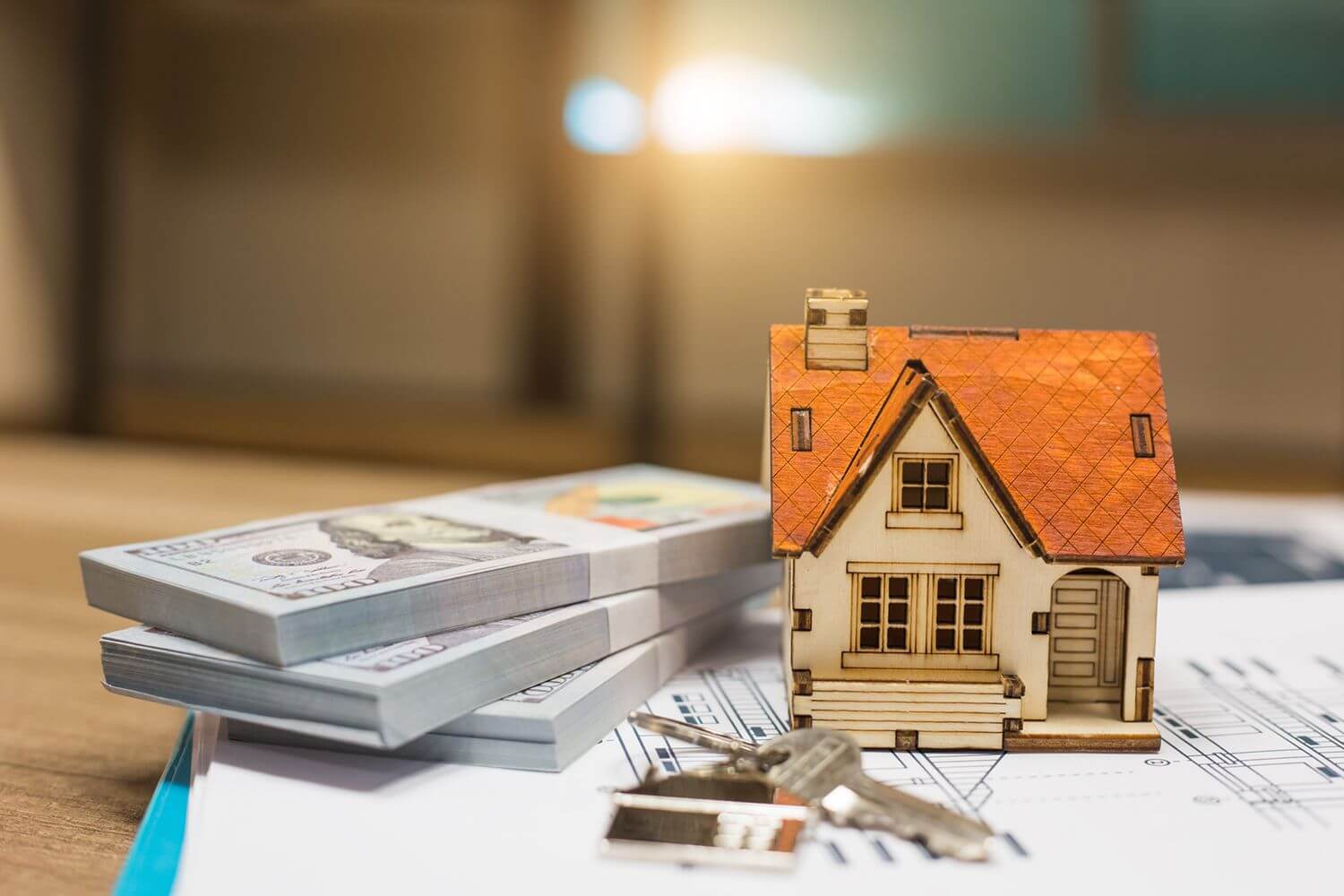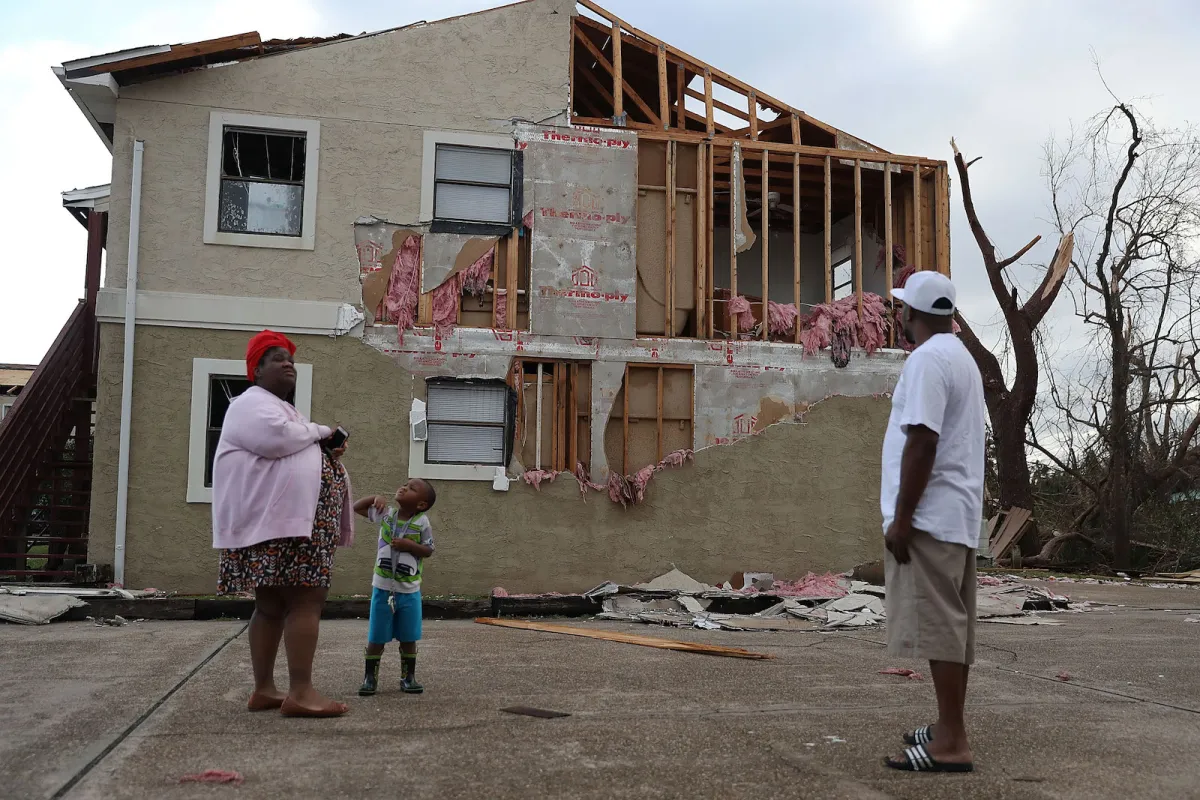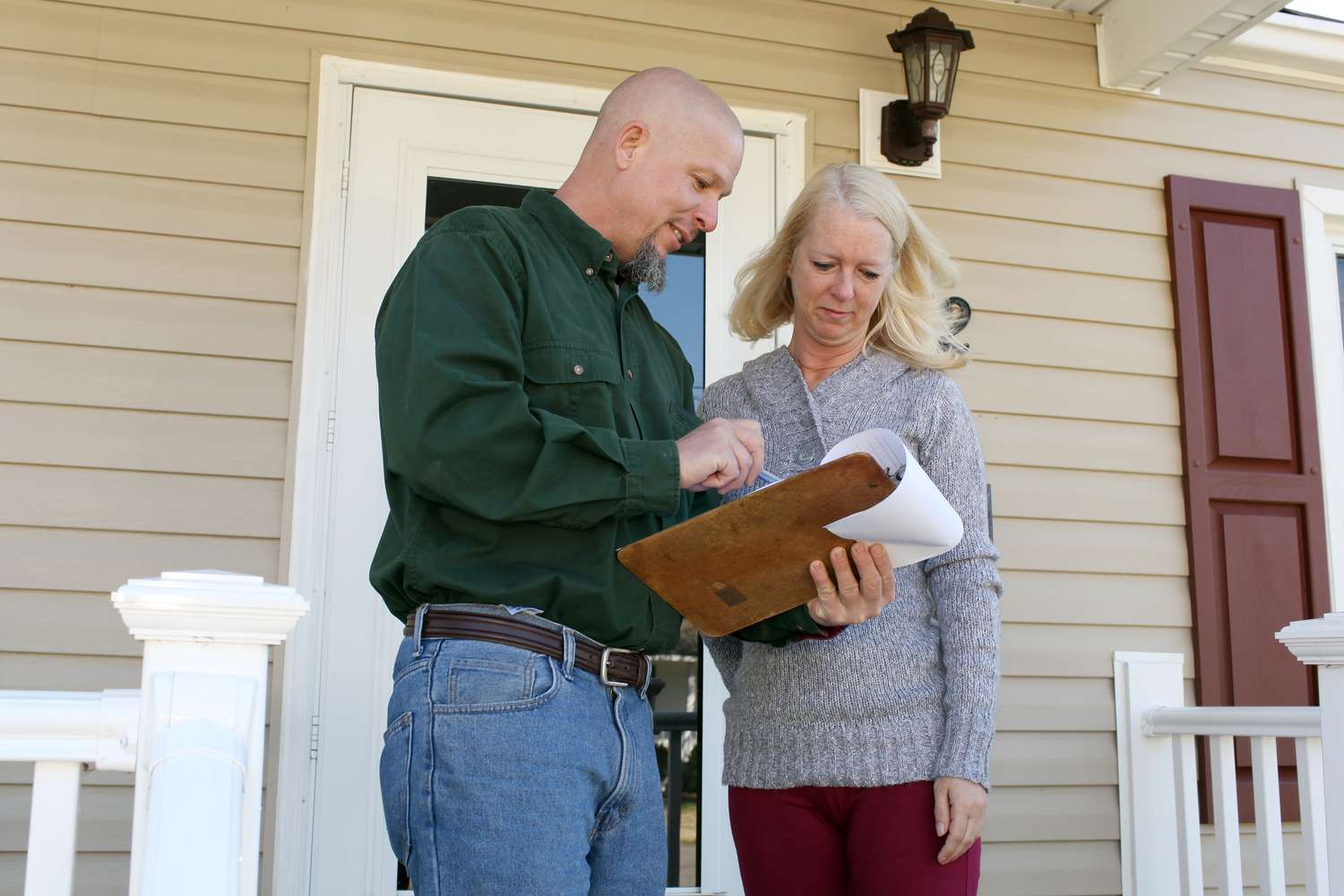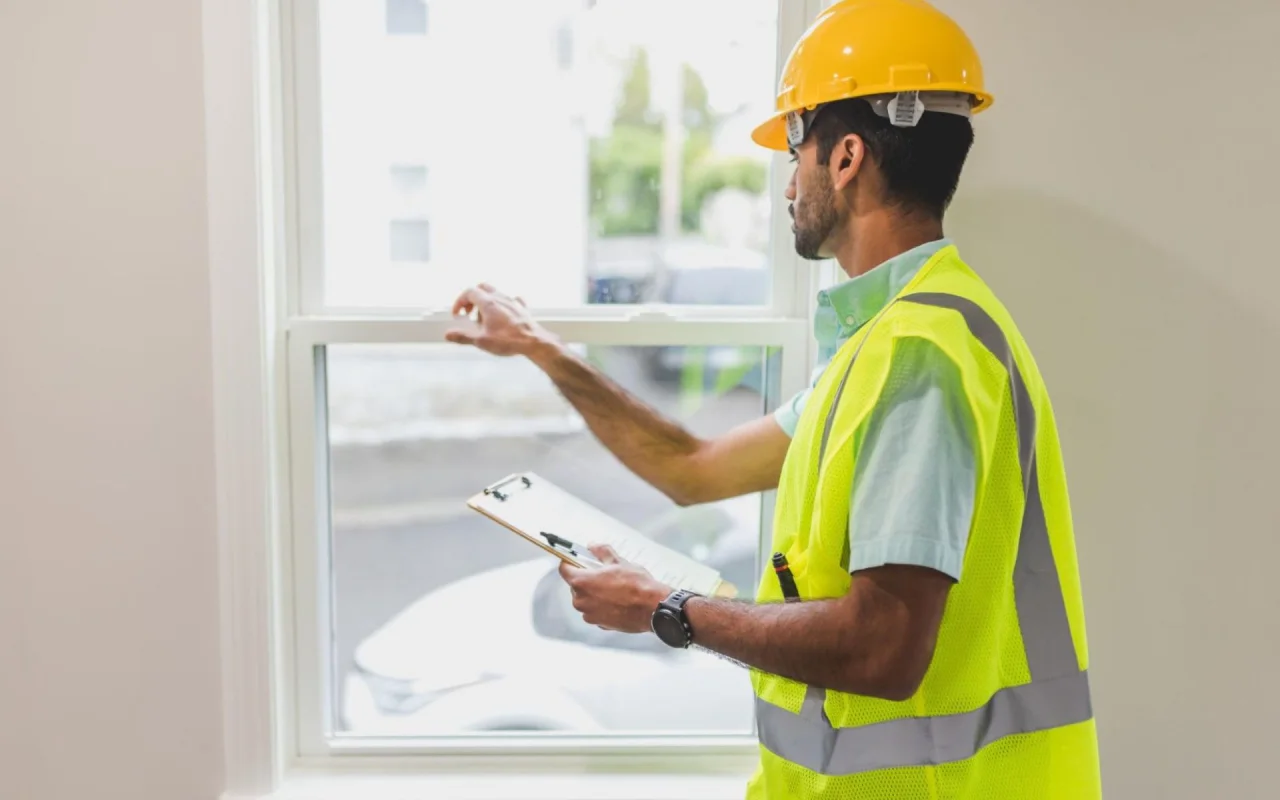Home>Home Maintenance>After Home Inspection: What’s Next


Home Maintenance
After Home Inspection: What’s Next
Modified: March 6, 2024
Wondering what to do after a home inspection? Learn about essential home maintenance tasks to ensure your property stays in top shape.
(Many of the links in this article redirect to a specific reviewed product. Your purchase of these products through affiliate links helps to generate commission for Storables.com, at no extra cost. Learn more)
Introduction
Buying a home is an exciting milestone in anyone’s life. It’s a significant investment and a place where you’ll create memories for years to come. But before you can fully celebrate, there’s an essential step to take – the home inspection. A home inspection is designed to uncover any potential issues or damages that may affect the safety, functionality, or value of the property.
Once you receive the home inspection report, it’s time to assess the findings and decide on the next steps. This article will guide you through the process of what to do after a home inspection, empowering you to make informed decisions and ensure a smooth path towards closing on your dream home.
At the heart of the matter is reviewing the home inspection report in detail. This comprehensive document outlines the inspector’s findings, including any major issues, safety concerns, or areas that may require further assessment. It’s crucial to review this report thoroughly and understand the scope of the problems mentioned.
Addressing major issues should be your top priority. These are the problems that pose a significant risk to the safety or livability of the home. Examples can include structural issues, electrical problems, plumbing leaks, or roofing damage. If such issues are identified, it’s essential to consult with professionals in the respective fields to evaluate the severity and potential solutions.
Obtaining repair estimates is also a crucial step in the process. Once you have a clear understanding of the major issues, reach out to contractors or specialists to assess the cost of repairs. Obtaining multiple estimates allows you to compare prices and choose the most reliable and cost-effective option.
The next stage involves negotiating with the seller. Armed with the repair estimates, you can have a conversation with the seller regarding potential remedies or credit towards the repair costs. It’s important to approach these negotiations with transparency, professionalism, and a willingness to find a mutually beneficial solution.
In some cases, you may want to request additional remedies or inspections as part of the negotiation process. For example, if the home inspection report identified signs of mold or other hidden issues, you may want to hire a specialist to conduct further assessments before proceeding with the purchase.
While the home inspection report provides valuable insight, it’s worth considering seeking a professional opinion. Consulting with contractors, engineers, or specialized home inspectors can provide a more detailed evaluation of the property’s condition and help you make well-informed decisions.
Revisiting financing and insurance options is another crucial step. If the home inspection report reveals significant issues, it’s important to reassess your financing eligibility and ensure that the necessary repairs won’t impact your loan or insurance coverage.
Once you’ve addressed the major issues, negotiated with the seller, and considered professional opinions, you can move forward with finalizing the purchase agreement. This includes establishing deadlines for repairs or remedies, ensuring that all parties are in agreement, and preparing for the closing process.
As you navigate the process after a home inspection, it’s essential to remain diligent, communicate effectively, and seek professional guidance when needed. By taking these steps, you’ll be well-equipped to make informed decisions and confidently move towards closing on your new home.
Key Takeaways:
- Address major issues promptly after a home inspection. Obtain repair estimates, negotiate with the seller, and consider professional opinions to ensure the safety and value of your new home.
- Revisit financing and insurance options post-inspection. Finalize the purchase agreement with clear terms and prepare for the closing process with the help of your real estate team.
Reviewing the Home Inspection Report
After the home inspection takes place, you’ll receive a detailed report outlining the findings from the inspector’s visit. This report is a comprehensive document that provides a thorough assessment of the property’s condition, highlighting any areas of concern or potential issues. Understanding how to review and interpret the home inspection report is crucial in making informed decisions about the next steps in the home buying process.
When reviewing the home inspection report, it’s important to pay attention to both the major issues and the minor findings. Major issues are typically those that have a significant impact on the safety, functionality, or value of the home. These may include structural concerns, electrical problems, plumbing leaks, or roofing damage. These items require immediate attention and should be at the top of your list for further assessment and repair.
Minor findings, on the other hand, are less critical but still worth considering. These can include cosmetic issues, general wear and tear, or minor repairs that may be needed in the future. While these may not be deal-breakers, it’s essential to acknowledge and factor them into your evaluation of the property’s overall condition.
As you read through the report, take note of any photos or diagrams included. These visual aids can provide a clearer understanding of the issues described and help you communicate with contractors or specialists if further assessments or repairs are required.
It’s important to remember that the home inspection report serves as a snapshot of the property at a specific point in time. While it provides valuable insights, it’s not exhaustive, and there may be hidden issues that were not identified during the inspection. Therefore, it’s a good idea to use the report as a starting point for further investigation and consultation with professionals.
Don’t hesitate to reach out to the home inspector for clarification if you have any questions or need additional information about the findings. They can help explain the severity of the issues, provide suggestions for next steps, and offer recommendations for further assessments or specialized inspections.
Additionally, consider seeking a professional opinion from contractors, engineers, or specialized home inspectors. Their expertise can provide a more detailed evaluation of the property’s condition and help you better understand the implications of the findings in the home inspection report.
By thoroughly reviewing and understanding the home inspection report, you can make informed decisions about the property’s condition and what steps to take next. This knowledge will empower you to move forward confidently in the home buying process and ensure you’re making the best choices for your future home.
Addressing Major Issues
When reviewing the home inspection report, one of the crucial aspects to focus on is addressing any major issues that have been identified. Major issues are those that pose a significant risk to the safety, functionality, or value of the home. These can include structural problems, electrical issues, plumbing leaks, or roofing damage. Addressing these issues promptly is essential to ensure the habitability and long-term viability of the property.
The first step in addressing major issues is to consult with professionals in the appropriate fields. Depending on the nature of the problem, you may need to contact contractors, engineers, electricians, plumbers, or roofing specialists. These professionals have the knowledge and expertise to assess the severity of the issue and recommend the most appropriate course of action.
Obtaining multiple repair estimates is an important part of the process. Reach out to several reputable contractors or specialists and request quotes for the necessary repairs. This allows you to compare prices, evaluate the proposed solutions, and choose the most reliable and cost-effective option.
When reviewing the repair estimates, consider the scope of the work, the materials used, and the warranties offered. Keep in mind that the cheapest option may not always be the best choice in the long run. It’s essential to balance cost-effectiveness with quality and durability, ensuring that the repairs address the underlying issues and prevent future problems.
Once you’ve selected a contractor or specialist, it’s time to schedule the necessary repairs. Coordinate with the seller, your real estate agent, and the chosen professional to find a suitable timeline for the work to be completed. Before the repairs begin, ensure that all necessary permits and documentation are obtained, and that the work complies with local building codes and regulations.
During the repair process, maintain open lines of communication with the contractor or specialist. Regularly check in on the progress and address any concerns or questions that may arise. It’s important to hold the professional accountable for delivering quality workmanship and adhering to the agreed-upon timeline.
Once the major issues have been successfully addressed and repaired, verify the completion of the work. Request documentation or receipts from the contractor as proof of the repairs. This documentation will be important for your records and may also be required for future insurance claims or resale of the property.
By promptly addressing major issues identified in the home inspection report, you take the necessary steps to ensure the safety, functionality, and value of the home. By working with professionals, obtaining repair estimates, and overseeing the repair process, you can confidently move forward in the home buying process, knowing that the property is in good condition.
Obtaining Repair Estimates
After reviewing the home inspection report and identifying the major issues that need to be addressed, the next step is to obtain repair estimates. Repair estimates provide you with an understanding of the cost and scope of the necessary repairs, allowing you to make informed decisions and plan accordingly.
To obtain repair estimates, reach out to reputable contractors or specialists in the respective fields. It’s important to source multiple estimates to ensure you have a range of options and can compare prices and proposed solutions.
Start by researching local contractors who specialize in the type of repairs needed. Seek recommendations from friends, family, or your real estate agent. Online review platforms can also be helpful in finding well-regarded professionals in your area.
Contact the contractors and provide them with relevant details from the home inspection report. Depending on the issue, they may physically inspect the property or request additional information to provide accurate estimates.
During the estimate process, ask questions and seek clarification on any aspects that are unclear. Understand the proposed timeline for the repairs, the materials that will be used, and any warranties or guarantees that come with the work.
When evaluating the repair estimates, consider more than just the total cost. Look at the breakdown of the estimate to understand what is included. This can help you compare apples to apples and identify any significant differences in materials or labor costs.
Take note of any variations in the scope of work among the estimates. Ensure that all necessary repairs are adequately covered, and there are no significant omissions or discrepancies.
While cost plays an important role in the decision-making process, it’s crucial to weigh it against the quality of work and reputation of the contractor. Choosing the cheapest option might not necessarily provide you with the best results in the long run. Research the contractors, read reviews, and ask for references to gain insights into their expertise, reliability, and customer satisfaction.
Once you have obtained the repair estimates, review them carefully and compare the proposed solutions. Consider the expertise, reputation, and references of the contractors alongside the cost. This will help you choose the most reliable and cost-effective option for the repairs.
Keep in mind that timing is crucial when addressing major issues after a home inspection. Promptly obtain repair estimates and make a decision to avoid any further damage or complications that may arise from delaying the repairs.
By obtaining multiple repair estimates, you gain a comprehensive understanding of the necessary repairs and their associated costs. This empowers you to make informed decisions, choose reputable contractors, and work towards restoring the property to its optimal condition.
Negotiating with the Seller
Once you have reviewed the home inspection report and identified major issues that need to be addressed, it’s time to enter into negotiations with the seller. Negotiating with the seller allows you to discuss potential remedies or credits towards the repair costs and find a mutually satisfactory outcome.
Approach the negotiation process with transparency, professionalism, and a focus on finding common ground. Keep in mind that the seller may not have been aware of the issues uncovered in the home inspection report, and they may be willing to work with you to resolve them.
Begin by compiling a list of the major issues and the repair estimates you have obtained. This will serve as documentation to support your negotiations and provide clarity on the expenses involved.
Communicate your concerns to the seller and provide them with a copy of the home inspection report, highlighting the major issues. Explain the need for repairs and the associated costs involved. Be clear and specific in your communication, ensuring that the seller understands the gravity of the situation.
Propose potential remedies or solutions. These can vary depending on the situation and the preferences of both parties. Options may include the seller arranging for the repairs to be completed before closing, providing a credit or reduction in the purchase price to offset the repair costs, or a combination of both.
As you enter into negotiations, be prepared to compromise. It’s unlikely that you will get everything you ask for, but by remaining flexible and open to alternative solutions, you increase the likelihood of reaching a mutually beneficial agreement.
Stay focused on the big picture and the ultimate goal of resolving the major issues. Avoid becoming too fixated on minor repairs or cosmetic issues that can be easily addressed after the purchase. Your focus should be on ensuring that the home is safe, functional, and meets your needs.
It’s advisable to have a real estate professional, such as your agent or attorney, involved in the negotiation process. They can provide guidance, leverage their experience, and help facilitate productive discussions with the seller.
Throughout the negotiation process, maintain open lines of communication with the seller and their representative. Promptly respond to any offers or counteroffers, and be respectful in all interactions. Remember, negotiations are a give-and-take process, so be prepared to make concessions if needed.
Once an agreement is reached, ensure that all the terms and conditions are clearly defined in writing. Have a written addendum or amendment to the purchase agreement that captures the agreed-upon remedies or credits. Consult with your attorney or agent to ensure that the document accurately reflects your understanding of the negotiations and protects your interests.
By approaching the negotiation process with professionalism and clear communication, you increase the chances of finding a resolution that satisfies both parties. Remember to stay focused on the major issues and be open to compromise, allowing you to move forward with confidence towards the closing of your new home.
After a home inspection, review the report carefully. Address any major issues with the seller and consider negotiating repairs or a credit. Keep in mind that not all issues may need to be addressed immediately.
Requesting Remedies or Further Inspections
After reviewing the home inspection report and negotiating with the seller, you may find that you need to request additional remedies or further inspections. This step is crucial in ensuring that you have a complete understanding of the property’s condition and addressing any potential hidden issues.
If the home inspection report highlighted concerns that require further evaluation, it’s important to request additional inspections. For example, if there are signs of mold or evidence of a potential pest infestation, a specialized inspection may be necessary to assess the extent of the problem.
Identify reputable professionals who specialize in the areas of concern and schedule the necessary inspections. Ensure that these specialists have the appropriate qualifications, certifications, and experience to carry out the assessments effectively.
During these additional inspections, be present if possible or ask for a detailed report of the findings. This will ensure that you are fully informed about any hidden issues or risks associated with the property.
If the additional inspections reveal significant problems that were not included in the initial home inspection report, you may need to request additional remedies from the seller. This could involve renegotiating the terms of the purchase agreement to account for the newly discovered issues.
When making your request for remedies, be specific and provide supporting documentation. Refer to the findings of the additional inspections and explain how these issues impact the safety or livability of the home. This documentation will strengthen your case and increase the likelihood of a positive outcome.
It’s important to approach the request for remedies or further inspections in a fair and reasonable manner. Be open to discussions with the seller and be prepared to negotiate in good faith. Remember that both parties have a shared interest in reaching a resolution that is satisfactory to both sides.
Consult with your real estate agent or attorney to guide you through the process and ensure that your requests are handled appropriately. They can provide valuable advice, help draft the necessary documents, and advocate for your best interests.
Keep in mind that sometimes the seller may not be willing or able to accommodate your requests for remedies or further inspections. In such cases, you will need to carefully evaluate the risks and determine whether you are comfortable proceeding with the purchase as-is or if it’s necessary to walk away from the deal.
By requesting remedies or further inspections, you are taking the necessary steps to uncover any hidden issues and protect your investment. This process allows you to have a clear understanding of the property’s condition and make informed decisions about moving forward with the purchase.
Considering a Professional Opinion
When navigating the home inspection process, it’s crucial to consider seeking a professional opinion. While the home inspection report provides valuable insights, consulting with contractors, engineers, or specialized home inspectors can offer a more detailed evaluation of the property’s condition.
If the home inspection report identifies major issues or if you have concerns about specific areas of the property, it’s worth engaging professionals who specialize in those fields. These experts can provide a deeper understanding of the problems identified and offer guidance on the best course of action.
For example, if the home inspection report reveals structural issues, it may be prudent to consult with a structural engineer who can assess the severity of the problem and provide recommendations for repairs or necessary reinforcements.
Similarly, if there are concerns about the plumbing or electrical systems, consulting with licensed plumbers or electricians can provide valuable insights and ensure that any necessary repairs are carried out safely and up to code.
When engaging professionals for a second opinion, it’s essential to choose reputable and experienced individuals or companies. Seek recommendations from trusted sources, check online reviews, and look for professionals who have the necessary licenses, certifications, and insurance.
When discussing the inspection findings with these professionals, provide them with a copy of the home inspection report. This will allow them to review the initial assessment and focus their evaluation on the areas of concern.
During the consultation, ask questions and take notes. Be open to their recommendations and seek clarification on any aspects that are unclear. Their expertise can help you make more informed decisions about the property and the necessary repairs or modifications.
Consider the professional opinion in the larger context of the home buying process. It may result in affirming the findings of the home inspection report or offer alternative viewpoints. The goal is to obtain a comprehensive understanding of the property’s condition to make the best decisions moving forward.
It’s important to note that a professional opinion does not replace the home inspection report. The home inspector is a qualified individual trained to assess the overall condition of the property. However, seeking additional insight can provide valuable perspectives and help you make more confident decisions.
Consulting with professionals ensures that you have a well-rounded understanding of the property’s condition and the necessary steps to address any issues. By considering a professional opinion, you gain valuable insights that can ultimately protect your investment and provide peace of mind.
Revisiting Financing and Insurance Options
After receiving the home inspection report and addressing any major issues, it’s essential to revisit your financing and insurance options to ensure they align with the property’s condition and potential risks. Taking the time to reassess these aspects will help protect your investment and provide peace of mind moving forward.
First, consider revisiting your financing eligibility. If the home inspection report uncovered significant issues that affect the property’s value or habitability, it’s important to understand how these issues may impact your loan approval.
Contact your mortgage lender and provide them with the relevant information from the home inspection report. They will likely request any supporting documents or estimates related to the repairs or remedies being undertaken. This additional information will help them assess the property’s value and make any necessary adjustments to your loan terms.
Be prepared for the possibility of the lender requesting additional inspections, appraisals, or documentation to verify the repairs or assess the property’s condition post-repairs. These steps are typically taken to protect their interests and ensure the property meets lending guidelines.
Secondly, review your homeowner’s insurance options. Contact your insurance provider to discuss the findings of the home inspection report and any repairs or adjustments being made to the property.
Insurance providers need accurate information to assess the risk associated with insuring the property. Disclose any major issues discovered during the home inspection and provide documentation of the repairs or remedies being undertaken. This will help ensure your insurance coverage adequately protects you from potential risks associated with those issues.
In some cases, the insurance provider may request a separate inspection or further documentation to assess the property’s insurability and determine the appropriate coverage and premiums. Cooperate with these requests to facilitate a smooth insurance process.
Review your policy to ensure it covers the specific risks identified in the home inspection report. If there are gaps in coverage or exclusions related to the issues discovered, discuss options with your provider to address these concerns.
Additionally, consider obtaining liability insurance, especially for older properties or those with known issues. This coverage can help protect you from legal and financial liabilities that may arise if someone is injured or their property is damaged due to a defect in or around your home.
By reevaluating your financing and insurance options, you ensure that your investment is adequately protected. This proactive approach helps mitigate potential risks associated with the property’s condition and gives you greater peace of mind moving forward.
Remember to communicate openly and honestly with your mortgage lender and insurance provider. Keep them informed of any updates or changes resulting from the home inspection process to maintain a transparent and cooperative relationship.
With a thorough reassessment of your financing and insurance options, you can confidently proceed with the knowledge that your investment is protected and your financial interests are secured.
Finalizing the Purchase Agreement
After addressing any major issues, negotiating with the seller, and considering professional opinions, it’s time to finalize the purchase agreement. This important step solidifies the terms of the home purchase and prepares you for the closing process.
Work closely with your real estate agent and attorney to ensure that all necessary paperwork is accurately completed and that your interests are protected. They will guide you through the process and help you navigate any legal complexities.
Review the terms and conditions stated in the purchase agreement. Ensure that they accurately reflect the agreements reached during negotiations and consider any contingencies or repairs that need to be addressed before closing.
If any amendments or addenda have been agreed upon as part of the negotiation process, include them in the final purchase agreement. This ensures that both parties are on the same page and that all agreed-upon terms are documented.
Verify that all necessary repairs, remedies, or credits are clearly outlined in the purchase agreement. Include the agreed-upon timeline for completion of repairs or remedies, ensuring that both parties are aware of their responsibilities and deadlines.
Consider including an inspection contingency clause that allows you to walk away from the deal or renegotiate if any unforeseen issues arise during subsequent inspections or assessments. It’s important to protect your interests in case any significant problems are discovered after the purchase agreement is finalized.
Review the financial terms of the agreement, such as the purchase price, earnest money deposit, and down payment. Double-check that these figures align with your understanding and any changes resulting from the negotiation process.
Ensure that the purchase agreement includes contingencies related to financing, appraisal, and other necessary steps. These contingencies provide you with the option to back out of the agreement without penalty if certain conditions are not met.
Once you are satisfied with the terms, sign the purchase agreement and submit it to the seller for their review and signature. Ensure that all parties receive a copy of the signed agreement for their records.
Work closely with your lender to complete any necessary loan applications and provide the required documentation to finalize your financing. Cooperate with the lender’s requests in a timely manner to ensure a smooth loan approval process.
Stay in regular communication with your real estate agent and attorney to address any questions or concerns that may arise during the finalization process. They can provide guidance and ensure that all necessary steps are completed accurately and on time.
Keep in mind that finalizing the purchase agreement is a significant step towards closing on your new home, but there are still additional tasks to complete before the transaction is officially finalized. Stay organized, follow through on any outstanding obligations, and be prepared for the closing process ahead.
By carefully reviewing and finalizing the purchase agreement, you set the stage for a successful closing and prepare to turn your dream of owning a home into a reality.
Moving Forward with the Closing Process
With the purchase agreement finalized, it’s time to move forward with the closing process. The closing is the final step in buying a home and involves completing all necessary paperwork, transferring ownership, and officially securing your new property. Here’s a guide to help you navigate this critical stage.
Coordinate with your real estate agent and attorney to schedule the closing date and location. The closing typically takes place at a title company, attorney’s office, or another designated location agreed upon by both parties.
Prior to the closing, you will receive a closing disclosure, which outlines all the financial details of the transaction. Review this document carefully to ensure accuracy and address any questions or concerns with your lender or attorney.
Gather all the necessary documentation required for the closing. This typically includes proof of homeowner’s insurance, a government-issued ID, the purchase agreement, and any additional documents specified by your lender or attorney.
Plan to bring certified funds or arrange for a wire transfer to cover the closing costs, down payment, and any other fees that may be due. Consult with your attorney or lender to determine the exact amount and preferred method of payment.
On the day of the closing, carefully review all the documents you are required to sign. This includes the deed, mortgage documents, the settlement statement, and any other paperwork related to the transaction. Take the time to read through each document and ask for clarification if necessary.
Be prepared to present any additional documentation or complete any additional tasks requested by the lender or attorney. This may include signing any required affidavits, providing proof of repairs or remedies, or addressing any outstanding conditions from the loan approval process.
Ensure that all parties involved in the transaction, including the seller, have met their obligations and are present at the closing. The closing is a collective effort, and all parties need to be in attendance to facilitate a smooth and successful transfer of ownership.
At the closing, funds will be disbursed to the appropriate parties, including the seller, real estate agents, and any other third parties involved in the transaction. Proper accounting of these funds is essential, and your attorney or closing agent will handle this process.
Once all the necessary documents have been signed, and the funds have been exchanged, the title company or attorney will record the transaction with the appropriate authorities. This officially transfers ownership of the property into your name.
Following the closing, ensure that you receive copies of all the signed documents for your records. These documents are valuable for future reference, insurance claims, and tax purposes.
Congratulations! You are now the proud owner of your new home. Celebrate this momentous occasion and start making plans to move into your new property.
Remember, the closing process is complex, and it’s important to have a reliable team consisting of a real estate agent, attorney, and lender to guide you through the intricacies. Stay in close communication with them and seek their assistance whenever needed.
By understanding the steps involved in the closing process and working closely with your team, you can confidently move forward and officially make your new house a home.
Frequently Asked Questions about After Home Inspection: What's Next
Was this page helpful?
At Storables.com, we guarantee accurate and reliable information. Our content, validated by Expert Board Contributors, is crafted following stringent Editorial Policies. We're committed to providing you with well-researched, expert-backed insights for all your informational needs.














0 thoughts on “After Home Inspection: What’s Next”